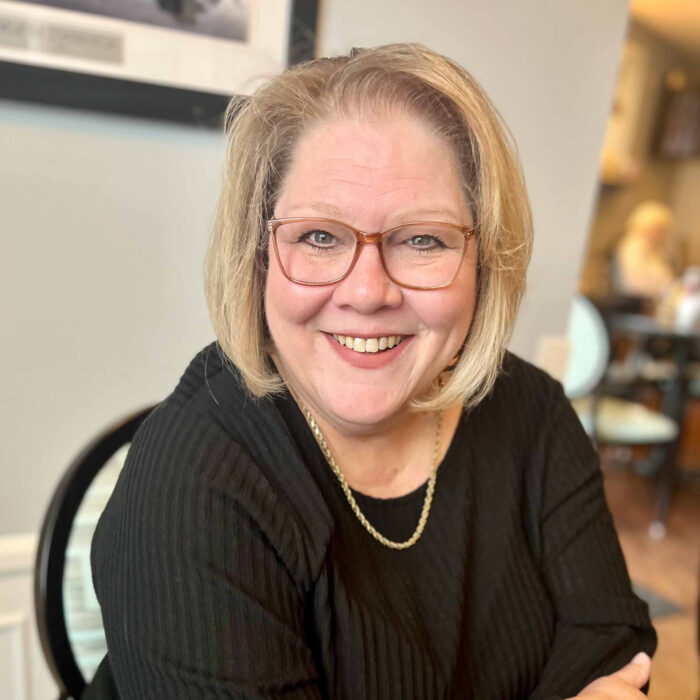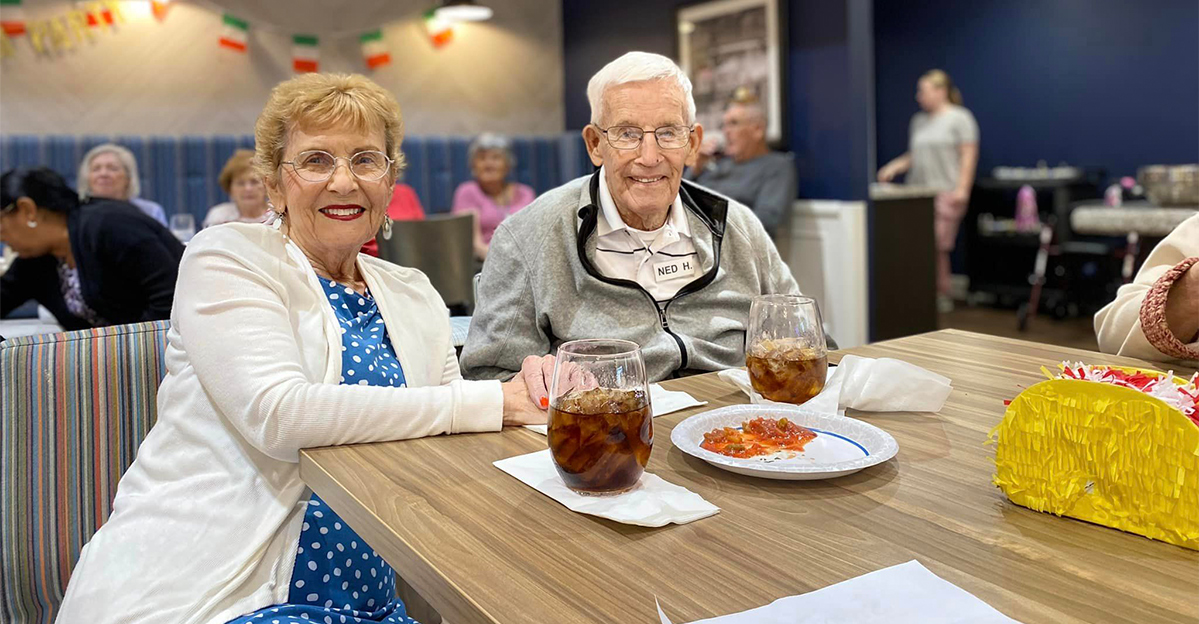Assisted living is a great option for seniors who need help with specific daily tasks, like bathing, dressing, or taking medication, but don’t require round-the-clock assistance. This includes individuals with early-stage dementia. However, as our family members age, it’s normal for their needs to change. If a loved one is already receiving care, recognizing when to move from assisted living to memory care can be a challenging time for everyone involved. When caregivers in assisted living start to notice changes in your family member’s behavior, it may be time to have a discussion about memory care.
While deciding when to move to memory care can be stressful and difficult, it can greatly help ensure your loved one’s health, comfort, and safety. In this guide, we’ll explore key signs that it’s time to transition and share practical strategies to make the move as smooth as possible for you and your loved one.
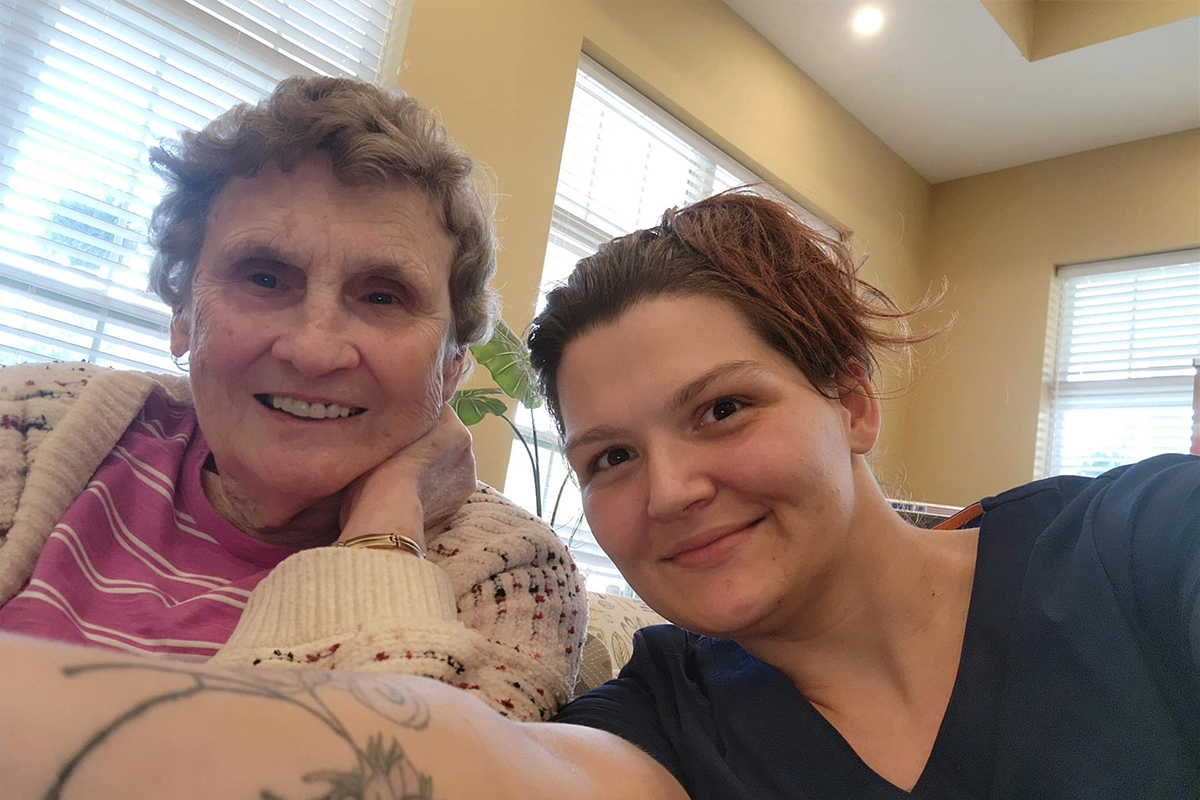
What Are the Signs It May Be Time for Memory Care?
Symptoms of dementia may worsen as the disease progresses. We truly understand how stressful this can be for everyone involved. Please remember, you’re not alone in navigating this emotional journey. We’re here to help.
Sometimes, changes in your loved one’s behavior may indicate when to move from assisted living to memory care. Recognizing these signs early can make a significant difference in their quality of life. Caregivers in memory care communities are specifically trained to provide a safe and comfortable environment for people with memory impairment. Here are some key signs that it’s time to move from assisted living to memory care:
Increased Forgetfulness
As dementia progresses, your loved one may have trouble remembering to take medication, forget names of people, or struggle with familiar routines. If your parent is becoming more forgetful, especially with recent events, it might be a sign they need more support.
Difficulty With Daily Activities
Activities of daily living (ADLs), like cooking, cleaning, or personal hygiene tasks, can become overwhelming for someone with memory impairment. If you notice your loved one is struggling to perform daily tasks due to forgetfulness, memory care can be a worthwhile consideration.
Confusion and Disorientation
People with later-stage dementia may wander or get lost, even in their own neighborhood. If a family member is becoming confused about familiar places or routes, like having trouble finding their way home, it may be an indication that they need specialized care.
Changes in Behavior and Mood
Noticeable changes in mood and behavior, such as increased agitation, anxiety, or depression, can be signs of advancing dementia and may indicate it’s time to move from assisted living to memory care.
Poor Judgment and Decision Making
If your loved one is making poor decisions or showing a lack of judgment, it might be a sign that it’s the right time for memory care. This can include things like forgetting to pay bills or neglecting their hygiene.
Social Withdrawal
Research suggests that isolation can worsen symptoms of dementia. As the disease progresses, individuals might start to withdraw from social activities or lose interest in hobbies they once enjoyed. This could be a sign they need more support.
Safety Concerns
As dementia progresses, a person can become more forgetful. This can make living alone unsafe. If your loved one is leaving the stove on, forgetting to lock doors, or wandering off, it might be the right time for memory care.

What Are the Signs It’s Not Time for Memory Care?
Deciding when to move from assisted living to memory care can be challenging. While it’s natural to want the best care for your family member, it’s important to carefully assess their needs before making a decision.
Not every sign of dementia means it’s time to switch to memory care right away. Understanding the signs that suggest it might not be the right time can help you make a more informed choice about your loved one’s care. Here are some key indicators that memory care might not be necessary just yet:
Occasional Forgetfulness
It’s normal for anyone to forget things from time to time. If the memory lapses are infrequent and don’t interfere with your parent’s daily tasks or safety, memory care might not be needed just yet.
Independent Living
Someone’s ability to manage daily tasks is usually a good indicator of their current needs. If your family member is still handling activities of daily living (ADLs), like cooking, cleaning, and personal care without much trouble, it may not be the right time for memory care.
Stable Behavior
Behavior and mood that remain relatively stable can suggest that memory care isn’t immediately necessary.
Sound Judgment
If decision-making and judgment are still strong and they manage responsibilities like finances effectively, memory care might not be required just yet. However, it’s important to watch out for any noticeable changes in these areas that might indicate a need for more support.
Social Engagement
If your family member is still engaging in social activities and maintaining relationships, it’s usually a positive sign that they’re managing well for now.
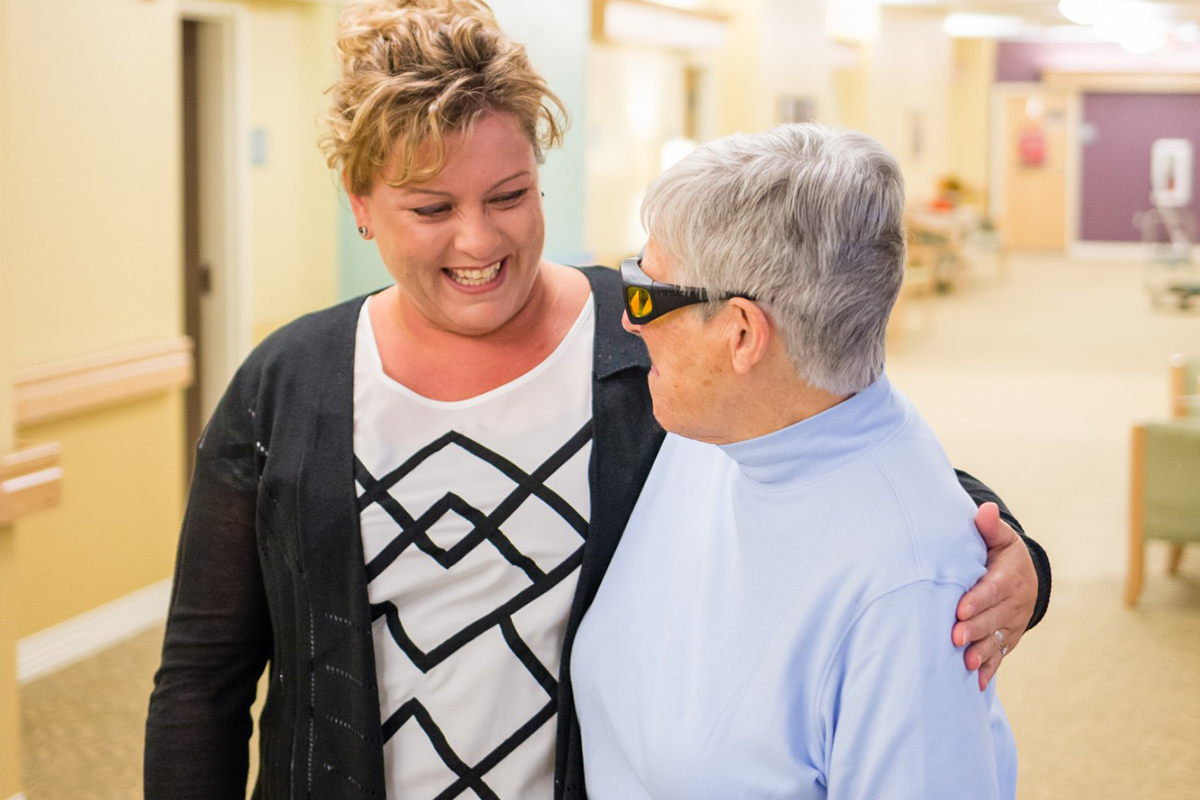
Managing the Transition Process
Moving your loved one from assisted living to memory care can provide a safer and more comfortable environment where they can thrive. It can also help avoid situations that might become overwhelming or unsafe in their current environment. However, this journey can be tough emotionally for everyone involved. We’re here to help. Remember to take care of yourself and seek support if you need it.
How to Choose the Right Memory Care Community
Finding the right memory community is important for your loved one’s comfort and safety. Start by researching local communities and making a list of potential options. Prioritize communities that have positive reviews, good employee-to-resident ratios, and adequate security measures in place. Finally, tour the communities to get a feel for the environment and ask about their approach to care, daily activities, and how they handle medical needs. It’s important that the community feels right for both you and your loved one.
What to Expect During the Transition Period
The transition from assisted living to memory care can be a challenging time for everyone involved. It’s normal for your loved one to feel confused or unsettled at first, and it may take some adjustment for them to get used to their new home. This may take a few weeks or even months. It’s important to be patient and understanding during this period.
Dealing With Resistance to Change
Your loved one might feel anxious or upset about their new surroundings. To help ease this resistance, try to involve them in the process as much as possible, and talk about the benefits of the move in a positive and reassuring way. It might also help to tour their new community with them before the actual move and introduce them to the employees.
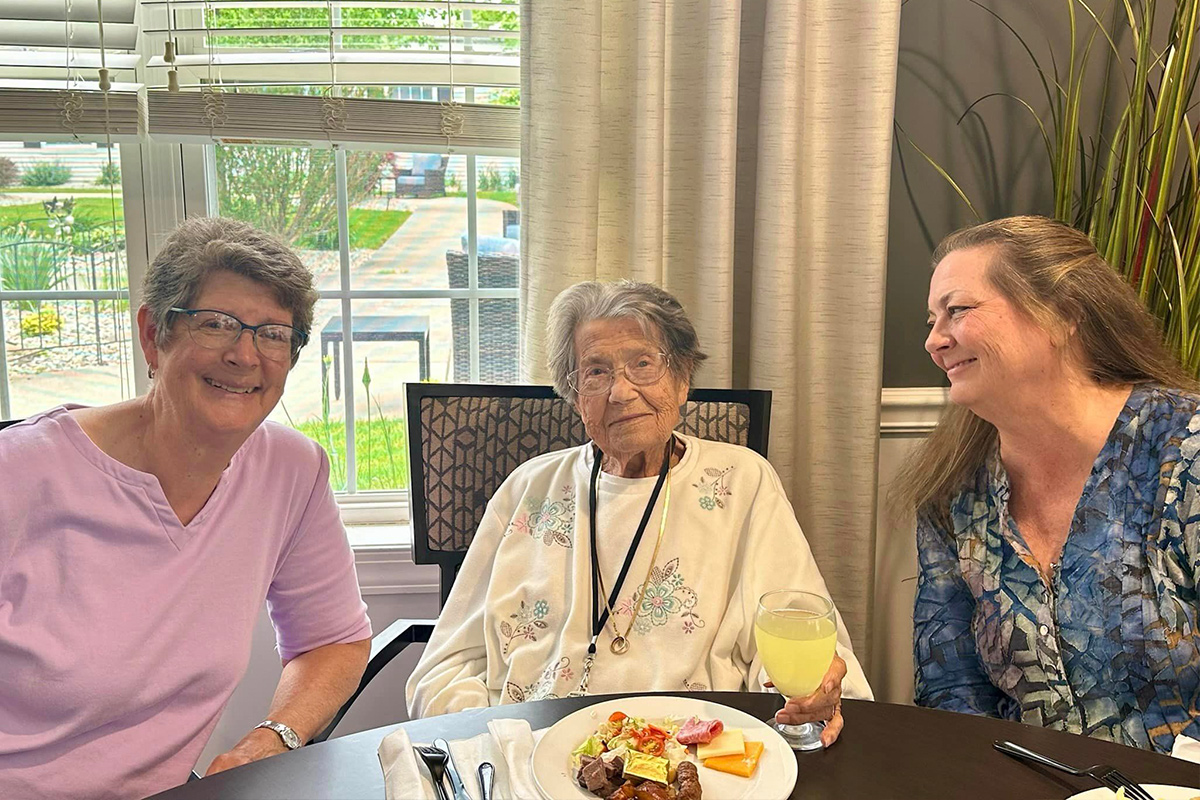
How to Support a Loved One in Memory Care
Supporting a loved one in memory care can help them make their journey more comfortable and fulfilling. Here’s how you can offer the best support during this time:
- Stay engaged and connected: While memory care may offer the care and support for your loved one’s needs, it’s important to stay involved. Try to visit them regularly and engage in activities they enjoy. This helps them feel valued and connected.
- Communicate with caregivers: Share important information about your loved one’s preferences, routines, and history. Building a strong relationship with the caregivers at the memory care community can help ensure that they receive personalized care and feel more at home.
- Encourage memory care programs: Most memory care communities offer a range of activities specifically designed for people with dementia. Encouraging your family member to participate in social activities and group events offered by the memory care community can make their time more fulfilling.
- Be patient and understanding: Caring for a loved one with dementia can be stressful, especially for family caregivers. It’s important to be patient and understanding of your loved one’s changing needs and behaviors, and approach each interaction with empathy and compassion.
- Provide emotional support: Emotional stability can significantly impact our overall well-being. Listen to your loved one’s concerns and reassure them of your love and support.
- Respect their independence: Allow them to make choices and participate in activities they enjoy. Respecting their autonomy can help them feel more empowered and respected.
Give Your Loved One the Care They Deserve
At StoryPoint Group communities, your loved one’s unique needs are at the heart of everything we do. Our team of dedicated and experienced employees are committed to meeting each resident’s unique needs — so they can make the most of each day. If you need additional guidance regarding memory care or any other type of senior living, we’re here to help you. Give us a call today at 1-844-275-9990 or schedule a tour of a StoryPoint Group community near your location.







